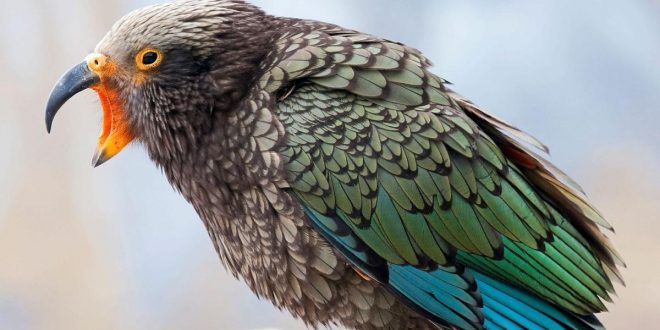A playful parrot has an infectious laugh that influences the behaviour of its feathered friends, researchers have discovered.
Study by a team led by Raoul Schwing of the Messerli Research Institute in Austria and published in the journal Current Biology reveals that in its vocal repertoire the kea has a “play call” – a sound that both announces its own playful mood and induces nearby birds to join in the fun.
Schwing’s team played recordings of kea play-calls to wild birds for five minutes at a time, as well as other kea vocalisations – and robin song to act as a control.
“Upon hearing the play call, many birds did not join in play that was already underway, but instead started playing with other non-playing birds, or in the case of solitary play, with an object or by performing aerial acrobatics,” the researchers write.
“These instances suggest that kea weren’t ‘invited’ to play, but this specific call induced playfulness, supporting the hypothesis that play vocalisations can act as a positive emotional contagion.”
The finding is the first time that an “infectious” call inducing high-spirited behavior – as distinct from protective flight-or-fight responses – has been seen in a non-mammal.
“The fact that at least some of these birds started playing spontaneously when no other birds had been playing suggests that, similar to human laughter, it had an emotional effect on the birds that heard it, putting them in a playful state,” says Schwing.
Agencies/Canadajournal
 Canada Journal – News of the World Articles and videos to bring you the biggest Canadian news stories from across the country every day
Canada Journal – News of the World Articles and videos to bring you the biggest Canadian news stories from across the country every day



